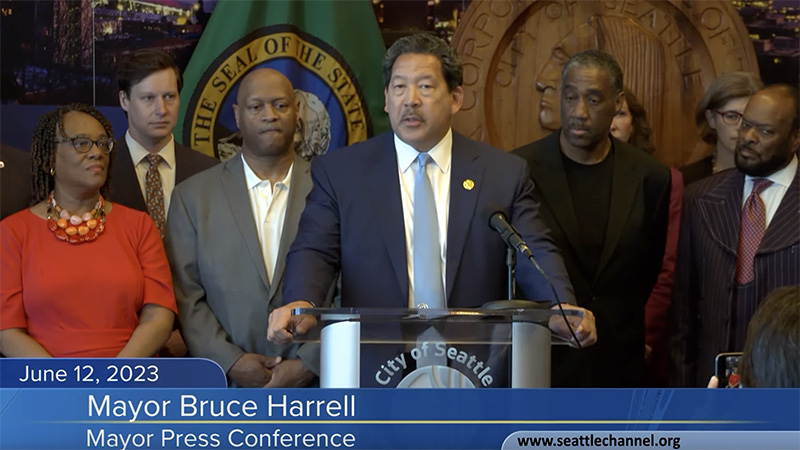
On Monday, Seattle Mayor Bruce Harrell urged city council members to reconsider their stance on the state’s new drug possession and public use law, proposing a comprehensive plan that includes additional treatment resources and enforcement guidelines. In June, the city council rejected the state law, which categorizes possession and public use of illegal drugs as gross misdemeanors, in a narrow 5-4 vote.
Harrell’s call for reconsideration comes in light of a 72% surge in overdose deaths in Seattle from 2021 to 2022. He has proposed a new bill that would codify the previously rejected state law, allocate $27 million for improved treatment facilities and addiction services, and direct the Seattle Police Department to prioritize diversion and referral to services over arrests in drug-related cases.
“Success will not — and cannot — be measured on how many people cycle through jail; instead, our focus is on improving connections to lifesaving treatment and expanding program options to better meet the needs of those with substance use issues,” Harrell stated.
The proposed legislation is the result of a month-long deliberation by Harrell’s appointed Fentanyl Systems Work Group, a task force of local officials and public safety experts. The group was tasked with creating a passable version of the failed bill. Harrell believes the new proposals represent significant strides towards a safer, healthier Seattle.
The original bill, introduced at the request of City Attorney Ann Davison, sought to adopt a state law that criminalizes public drug use and makes it a gross misdemeanor along with drug possession. The city council’s adoption of the state law would empower Davison’s office to prosecute these charges like other misdemeanors.
The new proposed legislation includes the original adoption of the state law and provides clear guidelines for the Seattle Police Department on when and how to enforce the law. It directs police to prioritize “diversion, treatment, and other alternatives to booking” and to consider the potential threat of harm before making arrests.
The proposal also significantly increases the city’s investments into treatment and diversion, allocating $27 million towards harm reduction, overdose response, and post-overdose care. The funds will be sourced from settlements from pharmaceutical companies involved in recent opioid lawsuits and the Community Development Block Grant request for proposal program.
The legislation is set to be discussed by the Public Safety and Human Services Committee before the council goes on break on August 21. The council will then return in September to begin the budget process.





